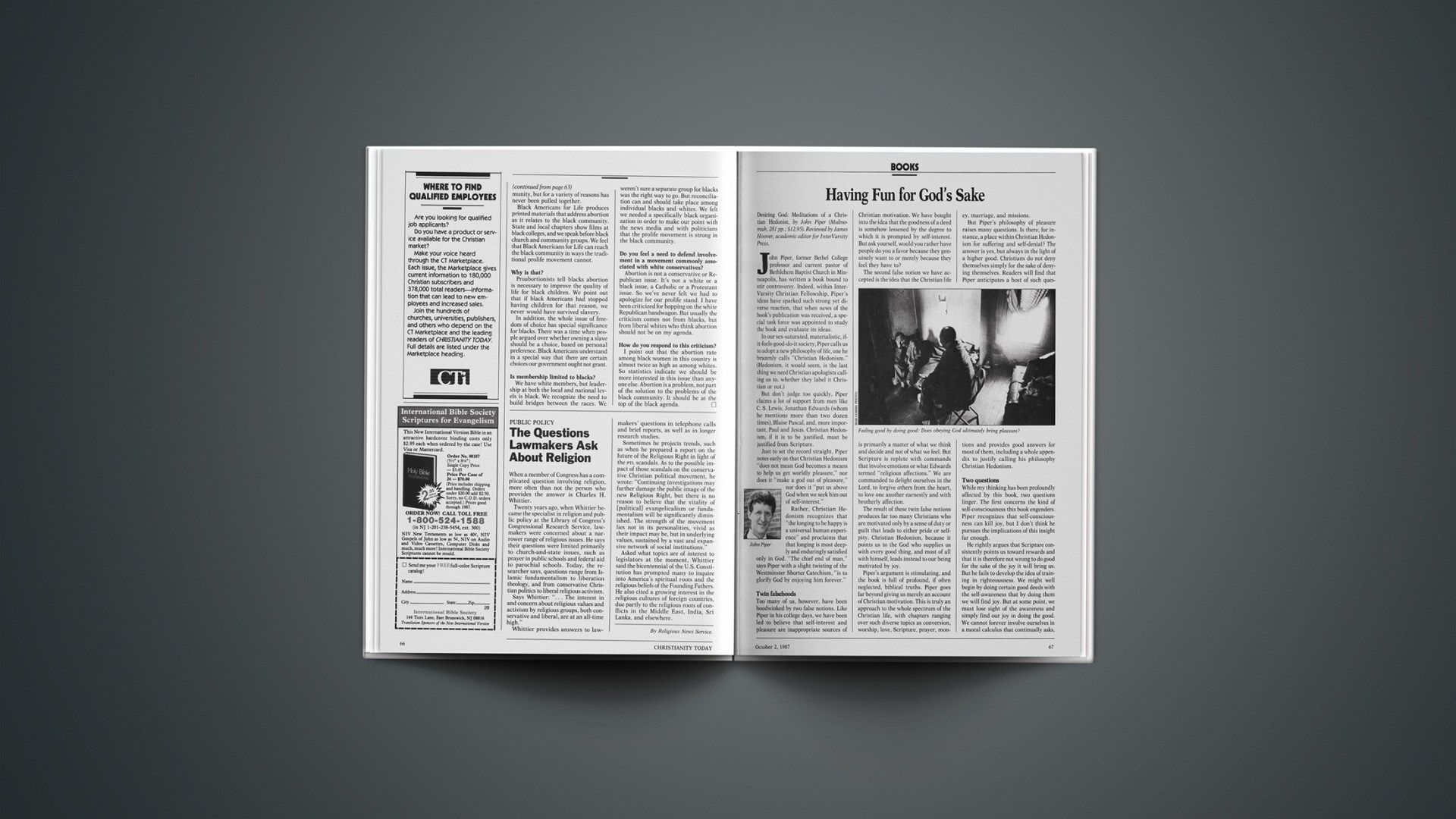Kay James is president of Black Americans for Life, an organization that seeks to educate and mobilize the black community to oppose abortion. Formed in 1986, the group claims more than 3,000 members in 40 states. In an interview with CHRISTIANITY TODAY, James discussed the goals of Black Americans for Life.
Why Was Black Americans For Life Formed?
Some blacks who are prolife were sitting around a table lamenting that the news media do not recognize the strong prolife constituency in the black community. The National Right to Life Committee, which I serve as director of public affairs, had already started an effort to enlist blacks in the prolife movement. Black Americans for Life took this idea and gave it a new structure, and we’ve become the black caucus of the prolife movement.
Are There Other Reasons Why A Prolife Organization For Blacks Is Needed?
Proabortionists use black people as pawns in advancing their agenda. The school-based clinic movement, for example, stresses the need for clinics in minority communities. We often hear that it’s poor, black women who need counseling on abortion. We felt a black voice was needed to say, “Thanks, but no thanks. We’re not interested.”
What Are The Organization’s Purposes?
Our focus is two-fold. First, to educate the black community about the prolife issues our country is facing, including infanticide and euthanasia. Second, we are mobilizing the prolife sentiment that exists in the black community, but for a variety of reasons has never been pulled together.
Black Americans for Life produces printed materials that address abortion as it relates to the black community. State and local chapters show films at black colleges, and we speak before black church and community groups. We feel that Black Americans for Life can reach the black community in ways the traditional prolife movement cannot.
Why Is That?
Proabortionists tell blacks abortion is necessary to improve the quality of life for black children. We point out that if black Americans had stopped having children for that reason, we never would have survived slavery.
In addition, the whole issue of freedom of choice has special significance for blacks. There was a time when people argued over whether owning a slave should be a choice, based on personal preference. Black Americans understand in a special way that there are certain choices our government ought not grant.
Is Membership Limited To Blacks?
We have white members, but leadership at both the local and national levels is black. We recognize the need to build bridges between the races. We weren’t sure a separate group for blacks was the right way to go. But reconciliation can and should take place among individual blacks and whites. We felt we needed a specifically black organization in order to make our point with the news media and with politicians that the prolife movement is strong in the black community.
Do You Feel A Need To Defend Involvement In A Movement Commonly Associated With White Conservatives?
Abortion is not a conservative or Republican issue. It’s not a white or a black issue, a Catholic or a Protestant issue. So we’ve never felt we had to apologize for our prolife stand. I have been criticized for hopping on the white Republican bandwagon. But usually the criticism comes not from blacks, but from liberal whites who think abortion should not be on my agenda.
How Do You Respond To This Criticism?
I point out that the abortion rate among black women in this country is almost twice as high as among whites. So statistics indicate we should be more interested in this issue than anyone else. Abortion is a problem, not part of the solution to the problems of the black community. It should be at the top of the black agenda.










